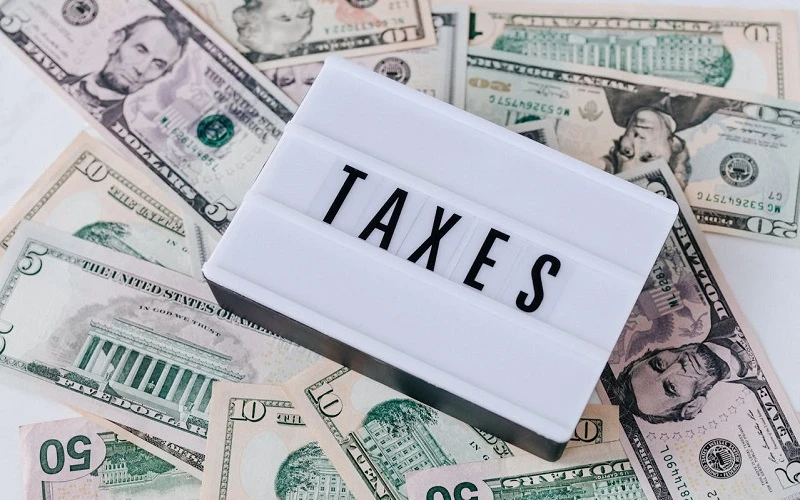Living with debt can be stressful and overwhelming. Credit cards, medical bills, student loans, and other debts can quickly pile up, leaving you unsure of where to turn. If you’re struggling to make payments and feel like you’re losing control of your finances, debt relief may be the solution you need.
Debt relief offers ways to reduce, reorganize, or even eliminate what you owe. It can provide breathing room, lower monthly payments, and help you regain your financial stability.
In this article, we’ll explore the top debt relief options available and explain how each one works so you can decide what’s best for your situation.
Debt Consolidation: Combining Payments into One
Debt consolidation is a popular way to manage multiple debts. It involves combining all your existing debts-like credit cards, personal loans, and medical bills-into a single loan with one monthly payment.
This method works best if you qualify for a lower interest rate than you’re currently paying on your debts. A lower rate can help you pay off your debt faster and save money in the long run.
Types of debt consolidation include:
- Personal loans
- Balance transfer credit cards
- Home equity loans or lines of credit
This is best for people with good credit and steady income who want a simplified payment plan.
Debt Management Plans (DMPs): Structured Repayment Programs
A debt management plan (DMP) is a program offered through credit counseling agencies. You make one monthly payment to the agency, and they distribute the money to your creditors.
These plans usually lower your interest rates and waive certain fees, which helps you pay off your debt faster, typically within 3 to 5 years. The key is sticking to the plan and avoiding new debt while enrolled.
Best for people with regular income who can commit to a repayment plan and want professional guidance.
Debt Settlement: Reducing the Amount You Owe
Debt settlement is when you or a company negotiates with your creditors to accept less than the total amount you owe. For example, if you owe $10,000, you might settle for $6,000.
This can significantly reduce your debt, but it comes with risks. Debt settlement may hurt your credit score because you typically stop making payments while negotiations take place. Also, creditors are not required to agree to settle.
Some of the best debt relief companies in Nueva York specialize in debt settlement and can help negotiate better terms than you might get on your own. This is suited for people with large unsecured debts and limited income who are considering bankruptcy as a last resort.
Credit Counseling: Getting Expert Help
Credit counseling agencies offer free or low-cost services to help you understand your finances, create a budget, and explore debt relief options.
A certified credit counselor reviews your income, expenses, and debts to recommend the best path forward. They may suggest a DMP or help you negotiate better terms with your creditors.
What to expect from credit counseling:
- One-on-one financial review
- Personalized debt repayment plan
- Budgeting advice
- Guidance on improving your credit
Best for: Anyone who needs help understanding their finances and wants to explore all available options.
Bankruptcy: A Legal Way to Discharge Debt
Bankruptcy is often seen as a last resort, but it can provide a fresh start for people who have no other way out. It’s a legal process that can eliminate or reduce many types of debt.
There are two main types:
Chapter 7
This is often called “liquidation bankruptcy” because it may require you to sell some of your property to pay back part of your debts. However, most people who file for Chapter 7 don’t lose their important possessions.
Chapter 13
This is often referred to as a “wage earner’s plan.” Unlike Chapter 7, this option doesn’t involve selling your property. Instead, it allows you to reorganize your debts and pay them off over time—usually 3 to 5 years—under a court-approved plan.
Filing for bankruptcy does impact your credit, usually for 7 to 10 years, but it can give you a clean slate and stop collection calls, lawsuits, and wage garnishments.
Refinancing: Lowering Interest on Specific Loans
Refinancing replaces your current loan with a new one that has better terms, such as a lower interest rate or longer repayment period. This can reduce monthly payments and help you manage your debt more easily.
Common refinancing options include:
- Mortgage refinancing
- Student loan refinancing
- Auto loan refinancing
Refinancing works best if you have good credit and steady income. This option is best for borrowers with high-interest loans who qualify for better rates.
Negotiating with Creditors Directly
You don’t always need a company to help you manage debt. If you’re confident, you can contact your creditors directly to request lower interest rates, longer repayment periods, or settlements.
Tips for negotiating on your own:
- Be honest about your situation
- Ask about hardship programs
- Get agreements in writing
- Stay calm and respectful
While this method doesn’t work in all cases, some creditors are willing to work with you to avoid default.
Using a Debt Relief Company
Debt relief companies offer services like debt settlement, debt management plans, and credit counseling. Many also help you create a strategy for paying off debt and avoiding future problems.
The best debt relief companies have strong customer reviews, transparent fees, and a proven record of success. Look for companies accredited by organizations like the American Fair Credit Council (AFCC) or the National Foundation for Credit Counseling (NFCC).
Creating a Budget and Sticking to It
No matter which debt relief method you choose, a realistic budget is key to financial control. A good budget helps you track income and expenses, reduce unnecessary spending, and set aside money for debt repayment.
Steps to building a budget:
- List all sources of income
- Track your monthly expenses
- Identify spending habits and cut costs
- Allocate money for debt payments
- Set savings goals
Using budgeting tools or apps can make the process easier and help you stay on track.
Take Control of Your Finances Today
Debt can feel like a heavy burden, but the good news is that you have options. From debt consolidation and management plans to bankruptcy and professional debt relief services, there’s a solution for every financial situation.
Whether you want to reduce your monthly payments, lower your interest rates, or settle your debts, taking the first step is the most important part. Consider speaking with one of the best debt relief companies to learn what’s right for you.
Want more tips and recommendations? Explore our latest blog now!




